
The clock ticks on. And on. And on. And sometimes, our lives go on unhappily, unless we do something to change the things we don’t like.
I hear the ticks clicking toward next Monday when I’m voluntarily going through a series of neuropsychological evaluations. No, I don’t have ADHD or Autism Spectrum Disorder (that I know of!). No, I don’t have headaches or Traumatic Brain Disorder, thank goodness. What I do have is a strong determination to better understand my lifelong headache of poor reading and comprehension skills. I’m sick of them, and sick of not knowing why I have either. If testing at this late stage seems desperate, it’s less desperate than the years spent floundering in school – and at work, still – dealing with my secret problem.
Cases in point:
Mrs. Johnson’s first grade reading period.
“All right, everyone. Read the first five pages silently at your desk and when you are done, we will talk about the story.”
The race begins. I blast through five pages, snap the book shut, cross my arms, and lean back in my chair.
A few minutes later, old Mrs. Johnson says, “Class, raise your hands if you’re done.”
My hand takes flight far over my head; all other hands appear grounded in comparison.
“All right, Michael. So. What color shoes was Jane wearing?”
Jane wore shoes?
“Speak up, Michael. Weren’t they the same color as the lamb?”
What lamb?
I look around. Every hand in class is waving hysterically, as if trying to peel the cracking paint chips off the ceiling.
“Michael, please sit down. Ellen, do you know?” This Ellen girl, with right arm nearly pulled out of its shoulder socket from spastic hand swaying, jumps to give her answer.
Her response is muted by a menacing white noise, like the sound I hear inside a conch shell. Such is the deep echo I encounter whenever I’ve done something wrong.
Finally, reading period is over. On to the all-purpose room for Friday art class.
Creating popsicle stick houses with glue, I am free. I’m an artist, not a reader. Right? Who needs library cards and late book fees? Who needs reading when TV’s around. Thank God for the weekend.
I start Saturday morning by viewing Captain Kangaroo and cartoon shows. During the afternoon, it’s movies – the simpler the better. After dinner, Mom and Dad switch the mood to serious evening news. Most interesting is the set decor, what the anchorman looks like, the pictures that magically pop up behind him. And commercials are the ultimate bonanza, always surefire entertainment!
Mrs. Marcotte’s eighth grade English class.
“So, Michael,” she says, catching me off guard. “What do you like to read at home?”
I’m astonished how many thoughts can flash through my mind in a split second of time to answer this question: The Flintstones / easy to follow TV show / no complicated character development / no deep universal themes you keep hitting me over the head with in class / love TV / hate your class …
“What?” I ask.
“Michael, I said, ‘do you watch television?’”
“Oh, yes.”
“Well, I think you need to watch less TV and start reading more. After all, what’s going to happen when you have to read things like Faust, Oedipus the King, and Pippi Longstocking?”
What? Who? Pippi Longstocking was a movie, but what movie were those other people in?
My guidance counselor’s office and my first plea for help.
“I don’t like to read.”
“Why?” Mr. Sexton asks.
“I just don’t. Mrs. Marcotte says we’re reading timeless landmarks of literature, but they’re really the most boring stories ever told …”
“Oh, no they’re not …”
“Oh, yes they are – of all time. And why does everyone and everything have to be so symbolic to something, and then symbolic to something else? If authors knew we had to go through all this in reading their books, they’d never have written them in the first place. Everyone else in my family is smart. Mom said we all came from good Scandinavian stock, so what happened to me?”
“Ha!”
“What?”
“If you want to see some really stupid people ….”
Mr. Sexton spins around in his chair and leans toward the floor between the wall and a cabinet. He returns with a big cardboard box that he dumps on his desk.
“Now t-h-e-s-e kids ….”
The box is filled with a carnival of confiscated classroom items: fuzzy dice, chains, novelty false teeth, yo-yos, cap guns, rubber knives, real knives, spray paint cans, “Car Mechanic” magazines, and a copy of Iliad with a giant “X” knife-gouged into the cover.
“Michael, you’re not dumb, unless you don’t use what you have. Learn to use what it is you do have – and always use it to its fullest. Perhaps you have a learning disability. Do you think so?”
“I dunno. What’s that? Other teachers just say I have the inability to learn, period if that’s what you mean. Guess there’s nothing symbolic about that, is there?” I say quite emphatically.
Sure, I’m smart enough to scrape by, but what about getting into college?
The mailman delivers a cream colored letter, postmarked “Princeton, New Jersey.” It couldn’t be the Princeton University New Jersey people, could it? Could it?
I rip open the envelope. It’s the SAT Princeton New Jersey people, and they have my score. 742. Out of 1200. It has to be a misprint. I look again. 742. It can’t be. My life is doomed – the SAT proves it. After all, isn’t that what tests are designed for, to find out if you’re stupid?
Good Scandinavian stock Mom had said. Good Scandinavian livestock maybe.
Why would college be any different than high school?
I’m having trouble absorbing any textbook with less than forty percent charts and graphs. Ones without two-page photo spreads every three pages put me to sleep. Even my art history book is ninety-five percent text, a huge disappointment. I’m bamboozled reading long paragraphs, especially those containing clauses with double negatives. And reading the pamphlet, “Gaining Better Concentration and Command of Written Material,” at the college learning center is of no use. Deciphering all its outlines, checkpoints and checklists seem more complicated than reading itself.
With so much catching up to do, I take a seat in McKelden Library one early Saturday morning and spread all my books out on the table.
By lunchtime, I’ve completed only one reading assignment. By two o’clock, I’m asleep in my chair. By four o’clock, all books are opened to pictures, graphs and colorful pie charts. By five, I’m asleep. By dinner time, I feel achy. I plan to skip eating and study some more before realizing I’m too tired to concentrate on anything, let alone read.
Preparing to leave, I strap on my knapsack. Stuffed with so many books, the weight hurts my back. Unable to carry the load, I retake my seat. Freed from assigned readings, my mind engages the real world. Questions abound. Why does my reading malady remain such a mystery? When did it begin? What explains it?
I exhale hard. Many characters, settings and dramas have led me here. But feeling so incomplete, there has to be more to the story than this.
Perhaps the neuropsychological tests are the rest of the story, or at least a beginning. Beginnings are hard, but I must unravel the conundrum that is my reading problem, not to mention anything associated with my slow learning, poor short term memory and difficulty understanding instructions.
I don’t expect anything to appreciably change just because I’ve been tested. It’s more about wanting to know what makes me tick.
Italicized sections are excerpts from Chapter Two, “Reading,” in my memoir, Maybe Boomer.
 My Book / Our Story
My Book / Our Story
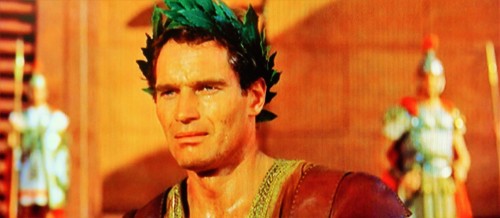 This year’s Easter feels different, perhaps because 2016 is an election year. Less the customary Easter weekend of peace and spirituality, it’s caucuses, delegates and speeches that capture attention. Brightly lit stages spotlight well-dressed politicians addressing hysterical followings. (That the politicos resemble various dark horses and lame ducks strutting around a field of wildly chirping chicks is probably just coincidence.)
This year’s Easter feels different, perhaps because 2016 is an election year. Less the customary Easter weekend of peace and spirituality, it’s caucuses, delegates and speeches that capture attention. Brightly lit stages spotlight well-dressed politicians addressing hysterical followings. (That the politicos resemble various dark horses and lame ducks strutting around a field of wildly chirping chicks is probably just coincidence.)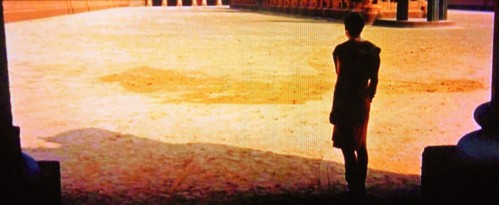
 I used to work in landscaping. Somewhere within my Scandinavian DNA I knew a skill to artfully construct with rock existed, but I chose to stay far away from hoisting heavy rocks – that was hard work. Deadheading flowers was more my forte. I owned up to that, while understanding the real artists in the dry rock trade were hardworking crews comprised mostly of Mexicans.
I used to work in landscaping. Somewhere within my Scandinavian DNA I knew a skill to artfully construct with rock existed, but I chose to stay far away from hoisting heavy rocks – that was hard work. Deadheading flowers was more my forte. I owned up to that, while understanding the real artists in the dry rock trade were hardworking crews comprised mostly of Mexicans.
 A rock worker sees within each stone and boulder its potential to fit within the larger picture of a pathway, wall, patio, step system, etc. Houses and buildings may one day crumble, but the carefully arranged rock constructions remain. I take a moment to salute our southern brothers, the quiet, steadfast artists – many long gone – whose sweat it took to make such enduring assemblies.
A rock worker sees within each stone and boulder its potential to fit within the larger picture of a pathway, wall, patio, step system, etc. Houses and buildings may one day crumble, but the carefully arranged rock constructions remain. I take a moment to salute our southern brothers, the quiet, steadfast artists – many long gone – whose sweat it took to make such enduring assemblies.
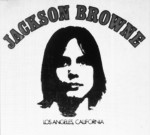

 I’ve been a Washington Capitals fan for all forty-one years of their existence. During that time, I’ve watched other NHL teams possess what it takes to win at the highest level while the Capitals for one reason or another have not. Now, for the first time, I’m watching the Capitals do to other teams what they’ve been doing to us in a million little ways for what seems a million long years, and I can’t believe my eyes. Here’s how Washington attacks opponents, 2015-16 style.
I’ve been a Washington Capitals fan for all forty-one years of their existence. During that time, I’ve watched other NHL teams possess what it takes to win at the highest level while the Capitals for one reason or another have not. Now, for the first time, I’m watching the Capitals do to other teams what they’ve been doing to us in a million little ways for what seems a million long years, and I can’t believe my eyes. Here’s how Washington attacks opponents, 2015-16 style.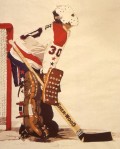
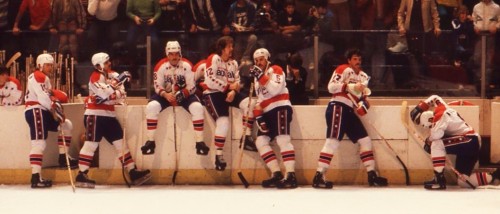


 manager, George McPhee, for fourteen seasons. Their player acquisition style of trading players and draft picks for big name stars failed to work and swung the Capital pendulum backward from the Poile years. Under McPhee, the Capitals failed to make the playoffs five seasons. During the eight they did – spread out over several campaigns with a mishmash of coaches – Washington reached the second round of playoffs only three times. The Capitals seemed predictable, a franchise regularly constructed of choking teams. Trying Hall of Famer Adam Oates as coach in 2012 was a prayer to change things. But midway through his second year in 2014, his system fell apart. Players failed to respond. Fans grumbled. Even the Capitol Dome just down the road from Verizon Center was crumbling, necessitating the government to begin a huge repair project still in force today. But could the Capitals be repaired?
manager, George McPhee, for fourteen seasons. Their player acquisition style of trading players and draft picks for big name stars failed to work and swung the Capital pendulum backward from the Poile years. Under McPhee, the Capitals failed to make the playoffs five seasons. During the eight they did – spread out over several campaigns with a mishmash of coaches – Washington reached the second round of playoffs only three times. The Capitals seemed predictable, a franchise regularly constructed of choking teams. Trying Hall of Famer Adam Oates as coach in 2012 was a prayer to change things. But midway through his second year in 2014, his system fell apart. Players failed to respond. Fans grumbled. Even the Capitol Dome just down the road from Verizon Center was crumbling, necessitating the government to begin a huge repair project still in force today. But could the Capitals be repaired?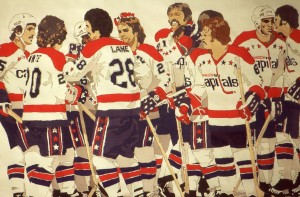
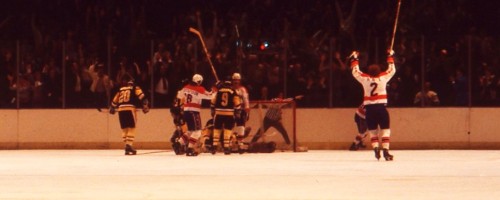
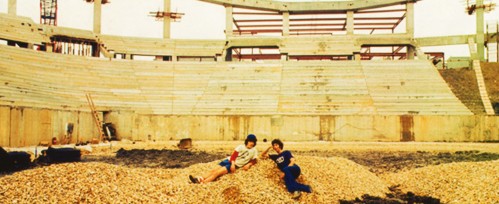

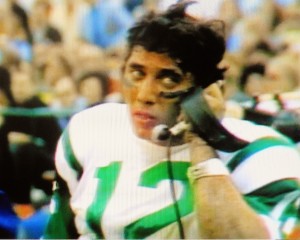
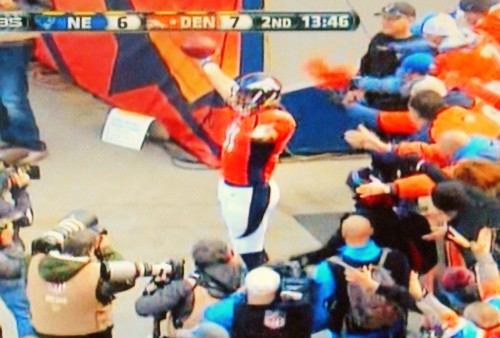


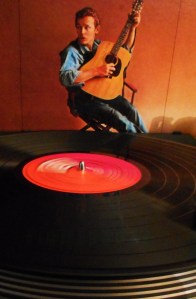

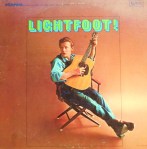

 I open the magazine. Adult Prose First Place winner – not me. Okay. I wasn’t expecting First Place anyway. I turn the page. Second Place. Not me. You know, it would be nice, just once, if I won … anyway. I turn the page. Another writer has taken Third Place. But, wait – something new this year, the List of Finalists, names of writers whose works were considered extremely worthy but didn’t make the cut. If I’m on the list, some progress has been made.
I open the magazine. Adult Prose First Place winner – not me. Okay. I wasn’t expecting First Place anyway. I turn the page. Second Place. Not me. You know, it would be nice, just once, if I won … anyway. I turn the page. Another writer has taken Third Place. But, wait – something new this year, the List of Finalists, names of writers whose works were considered extremely worthy but didn’t make the cut. If I’m on the list, some progress has been made.
